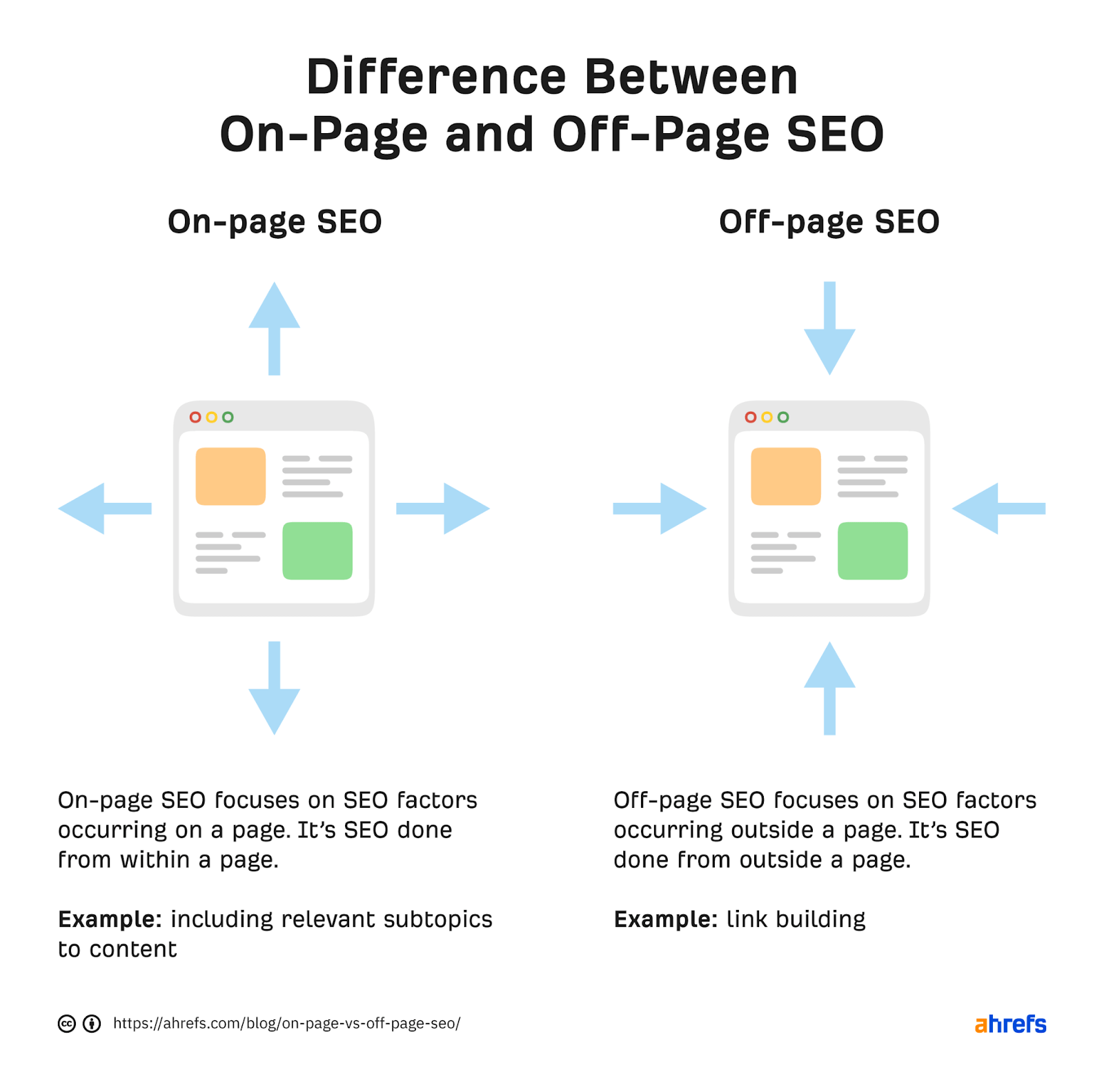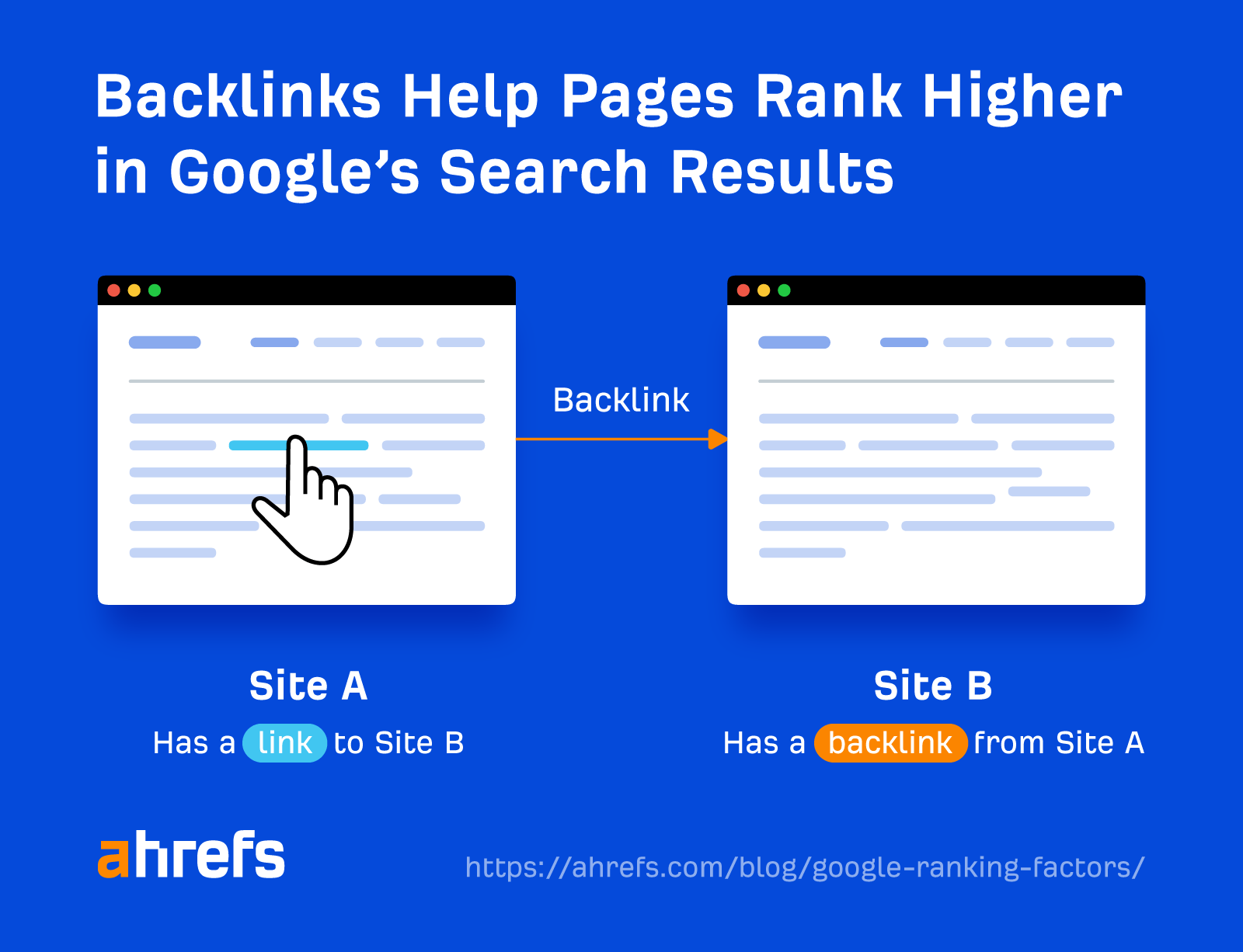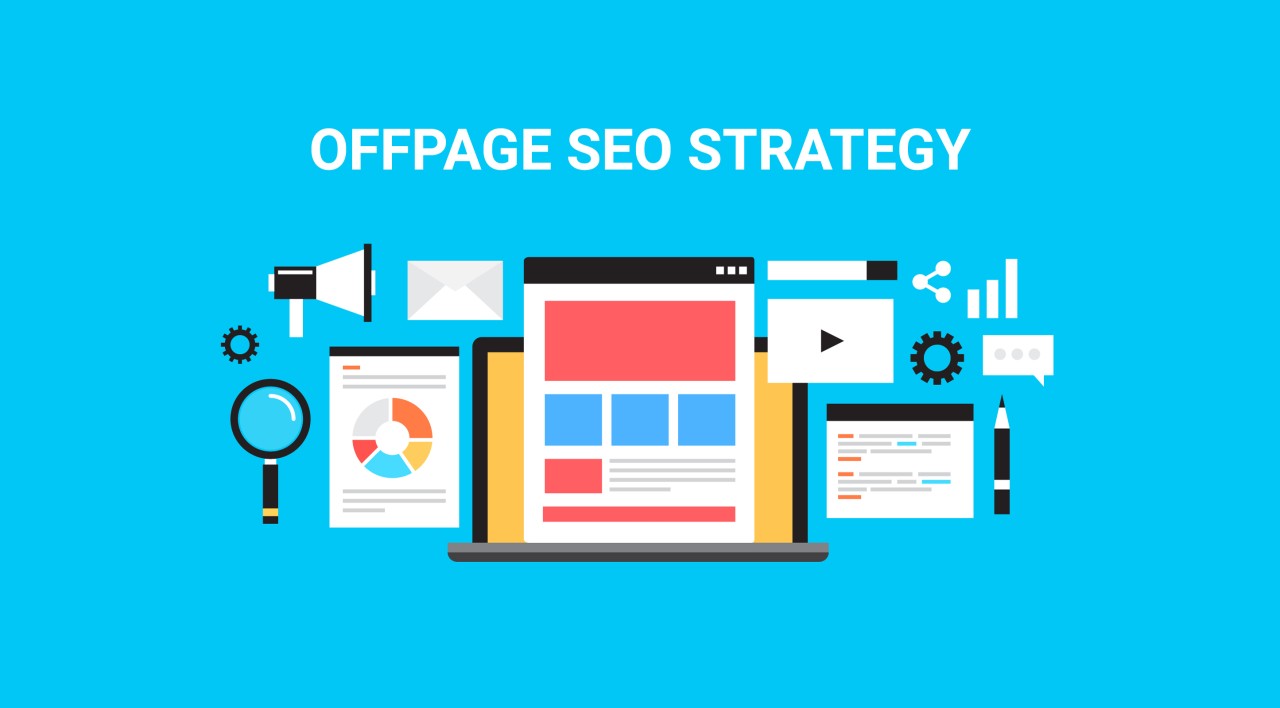Off-page SEO refers to the optimization efforts made outside of your own website to improve its search engine rankings and enhance online visibility. While on-page SEO involves optimizing factors within your website, such as content and HTML source code, off-page SEO focuses on external factors like backlinks and social signals. In simpler terms, off-page SEO is about building your website’s reputation and authority across the internet.
Importance of Off-page SEO
Off-page SEO plays a crucial role in determining your website’s credibility and relevance in the eyes of search engines like Google. Search engines consider factors like the number of backlinks, quality of referring domains, and social media presence when ranking websites in search results. A strong off-page SEO strategy can help increase organic traffic, improve search engine rankings, and ultimately drive more conversions and sales.
Backlinks: The Backbone of Off-page SEO
Backlinks are one of the most important ranking factors in off-page SEO. A backlink is a link from another website to yours. Search engines view backlinks as votes of confidence in your content. The more high-quality backlinks your website has, the more authoritative it appears to search engines. However, it’s essential to focus on acquiring quality backlinks from relevant and reputable websites rather than simply quantity.

source: ahrefs
Understanding Backlinks
Backlinks act as pathways that lead users from one webpage to another. When a website links to your content, it signals to search engines that your content is valuable and worth referencing. This can help improve your website’s authority and relevance, leading to higher rankings in search results.
Types of Backlinks
Not all backlinks are created equal. There are different types of backlinks, including:
- Natural Backlinks: These are links that are acquired organically, without any manipulation or solicitation.
- Editorial Backlinks: Links that are given by websites because they find your content valuable and relevant.
- Guest Blogging Backlinks: Links obtained by contributing guest posts to other websites within your niche.
- Social Media Backlinks: Links generated from social media platforms when users share your content.
Social Media Presence and Its Role in Off-page SEO
Social media has become an integral part of off-page SEO strategy. It provides a platform for businesses to engage with their audience, share valuable content, and build brand awareness. Having an active presence on social media can help amplify your content, attract more followers, and generate social signals that impact search engine rankings
Leveraging Social Media Platforms
Different social media platforms cater to various demographics and interests. It’s essential to identify which platforms your target audience frequents and tailor your content accordingly. Whether it’s sharing blog posts, engaging in conversations, or running ad campaigns, social media can significantly impact your off-page SEO efforts.
Building Brand Awareness
Social media offers a unique opportunity to showcase your brand’s personality and values. By consistently sharing valuable content and engaging with your audience, you can build brand loyalty and trust over time. This can lead to increased brand mentions, shares, and ultimately, more backlinks to your website.
Guest Blogging and Content Marketing Strategies
Guest blogging is a popular off-page SEO technique used by many businesses to increase their online visibility and attract more traffic to their websites. It involves writing and publishing articles on other websites within your industry or niche, typically with a link back to your own site.
Benefits of Guest Blogging
Guest blogging offers several benefits, including:
- Expanded Reach: By publishing content on other websites, you can reach a broader audience and attract new visitors to your site.
- Backlink Building: Guest blogging allows you to earn backlinks from high-authority websites, which can improve your website’s search engine rankings.
- Establishing Authority: Contributing valuable content to reputable websites can help position you as an expert in your field and build credibility with your audience.
Effective Content Marketing Techniques
In addition to guest blogging, content marketing encompasses various strategies aimed at creating and distributing valuable, relevant, and consistent content to attract and retain a clearly defined audience. Some effective content marketing techniques include:
- Creating High-Quality Content: Focus on producing informative, engaging, and shareable content that resonates with your target audience.
- Optimizing for Search Engines: Incorporate relevant keywords and optimize your content for search engines to improve its visibility and reach.
- Promoting Across Multiple Channels: Share your content across various platforms, including social media, email newsletters, and industry forums, to maximize its exposure and impact.

Online Reputation Management (ORM)
Online reputation management is another crucial aspect of off-page SEO. It involves monitoring and managing your brand’s online presence to ensure that it accurately reflects your values and resonates with your target audience.
Monitoring Brand Mentions
It’s essential to keep track of what people are saying about your brand online. This includes monitoring mentions on social media, review websites, forums, and other online platforms. By staying informed about conversations surrounding your brand, you can address any issues or concerns promptly and maintain a positive reputation.
Handling Negative Reviews
Negative reviews can significantly impact your brand’s reputation and credibility. Instead of ignoring or dismissing negative feedback, it’s essential to address it professionally and empathetically. Responding promptly and offering solutions to customer concerns can help mitigate the damage and demonstrate your commitment to customer satisfaction.
Influencer Outreach and Collaboration
Influencer outreach is a strategic approach to leveraging the authority and reach of influential individuals within your industry or niche to promote your brand, products, or services.
Identifying Relevant Influencers
When selecting influencers to collaborate with, it’s crucial to consider factors such as relevance, reach, and engagement. Look for influencers whose values align with your brand and whose audience matches your target demographic. Building authentic relationships with influencers can lead to mutually beneficial partnerships and increased brand visibility.
Collaborative Campaigns
Collaborating with influencers can take various forms, including sponsored content, product reviews, or brand endorsements. By partnering with influencers to create authentic and compelling content, you can tap into their audience and expand your reach beyond your existing networks.
Local SEO and Off-page Strategies
Local SEO focuses on optimizing your online presence to attract more local customers and improve visibility in local search results. It’s particularly important for businesses with physical locations or those targeting specific geographic areas.
Importance of Local SEO
With the increasing prevalence of mobile search and location-based queries, optimizing for local search has become essential for businesses looking to attract nearby customers. Local SEO tactics help ensure that your business appears in relevant local search results, driving foot traffic and conversions.
Implementing Local SEO Tactics
Some effective local SEO strategies include:
- Optimizing Google My Business: Claim and optimize your Google My Business listing with accurate business information, photos, and customer reviews.
- Local Keyword Targeting: Use location-specific keywords in your website content, meta tags, and anchor text to improve your visibility in local search results.
- Local Citations: Ensure that your business information, such as name, address, and phone number (NAP), is consistent across online directories and citation sites.
Measuring Off-page SEO Success
Tracking and analyzing key metrics is essential for evaluating the effectiveness of your off-page SEO efforts and making informed decisions to optimize your strategy.
Key Metrics to Track
Some key metrics to monitor include:
- Backlink Profile: Keep track of the quantity and quality of backlinks pointing to your website, including the number of referring domains and anchor text distribution.
- Social Media Engagement: Measure engagement metrics such as likes, shares, comments, and mentions across social media platforms to gauge the impact of your social media efforts.
- Brand Mentions: Monitor brand mentions and sentiment online to assess your brand’s reputation and identify opportunities for improvement.
Tools for Monitoring Off-page SEO Efforts
Several tools can help you track and analyze off-page SEO metrics, including:
- Google Analytics: Use Google Analytics to monitor website traffic, referral sources, and user engagement metrics.
- SEMrush: SEMrush offers comprehensive tools for backlink analysis, social media monitoring, and brand mentions tracking.
- Moz Link Explorer: Moz’s Link Explorer provides insights into your website’s backlink profile, including spam score, domain authority, and anchor text analysis.
Common Off-page SEO Mistakes to Avoid
While off-page SEO can be highly beneficial for improving your website’s visibility and rankings, there are several common mistakes that businesses should avoid.
Spammy Backlinks
Acquiring low-quality or spammy backlinks can harm your website’s reputation and lead to penalties from search engines. Instead, focus on earning high-quality backlinks from authoritative and relevant websites through natural and ethical means.
Ignoring Social Signals
Social signals, such as likes, shares, and comments on social media platforms, can influence your website’s search engine rankings. Ignoring social media or failing to engage with your audience can hinder your off-page SEO efforts. Be active on social media, share valuable content, and interact with your followers to enhance your social signals.
Future Trends in Off-page SEO
As search engine algorithms continue to evolve, off-page SEO strategies are also evolving to adapt to changing trends and user behaviors.
Voice Search Optimization
With the rising popularity of voice-enabled devices and virtual assistants, optimizing for voice search is becoming increasingly important. Businesses need to optimize their content for natural language queries and long-tail keywords to improve their visibility in voice search results.
User-generated Content
User-generated content, such as customer reviews, testimonials, and social media posts, can significantly impact your off-page SEO efforts. Encouraging user-generated content can help increase brand engagement, build trust with your audience, and generate valuable backlinks and social signals.
Conclusion
Off-page SEO is a critical component of any comprehensive SEO strategy. By focusing on building quality backlinks, maintaining an active presence on social media, and engaging in influencer outreach and collaboration, businesses can improve their online visibility, attract more traffic, and ultimately, drive conversions and sales.
FAQs (Frequently Asked Questions)
What is the difference between on-page and off-page SEO?
On-page SEO refers to optimization efforts made within your website, such as content, meta tags, and HTML code, while off-page SEO focuses on external factors like backlinks and social signals.
How long does it take to see results from off-page SEO efforts?
The timeline for seeing results from off-page SEO can vary depending on various factors, including the competitiveness of your industry, the quality of your backlinks, and the effectiveness of your overall SEO strategy. In general, it can take several weeks to several months to see noticeable improvements in search engine rankings.
Are all backlinks equally valuable for off-page SEO?
No, not all backlinks are created equal. Quality backlinks from authoritative and relevant websites are more valuable than low-quality or spammy backlinks. It’s essential to focus on acquiring high-quality backlinks that contribute to your website’s authority and credibility.
How can I measure the success of my off-page SEO efforts?
You can measure the success of your off-page SEO efforts by tracking key metrics such as backlink profile, social media engagement, and brand mentions. Use tools like Google Analytics, SEMrush, and Moz Link Explorer to monitor and analyze these metrics regularly.
What are some common mistakes to avoid in off-page SEO?
Some common off-page SEO mistakes to avoid include acquiring spammy backlinks, ignoring social signals, and neglecting online reputation management. Focus on building quality backlinks, maintaining an active presence on social media, and monitoring your brand’s online reputation to avoid these pitfalls.

0 Comments